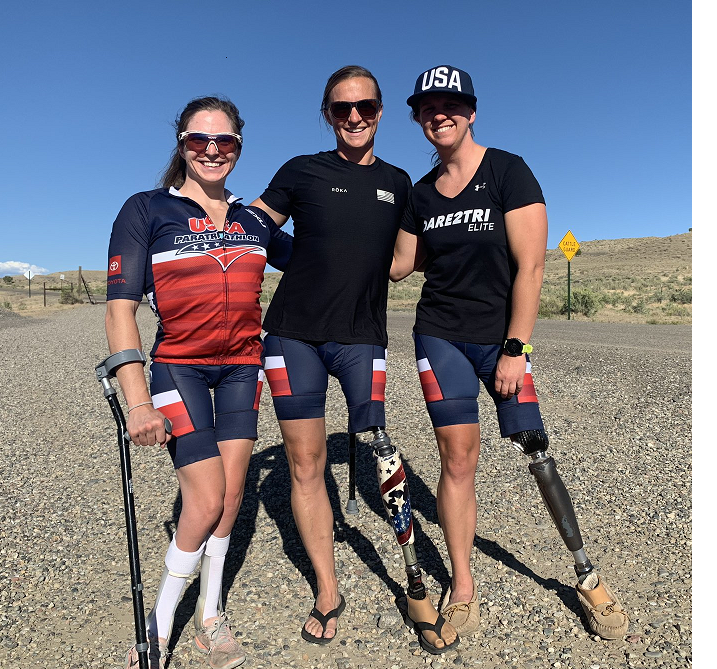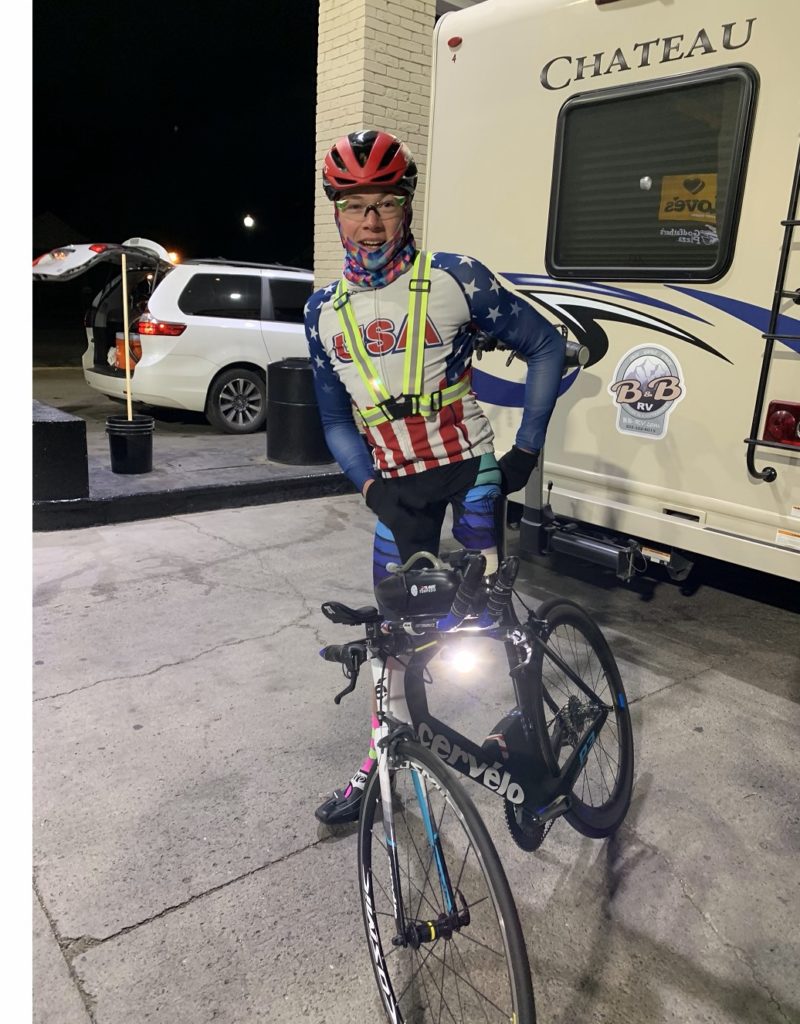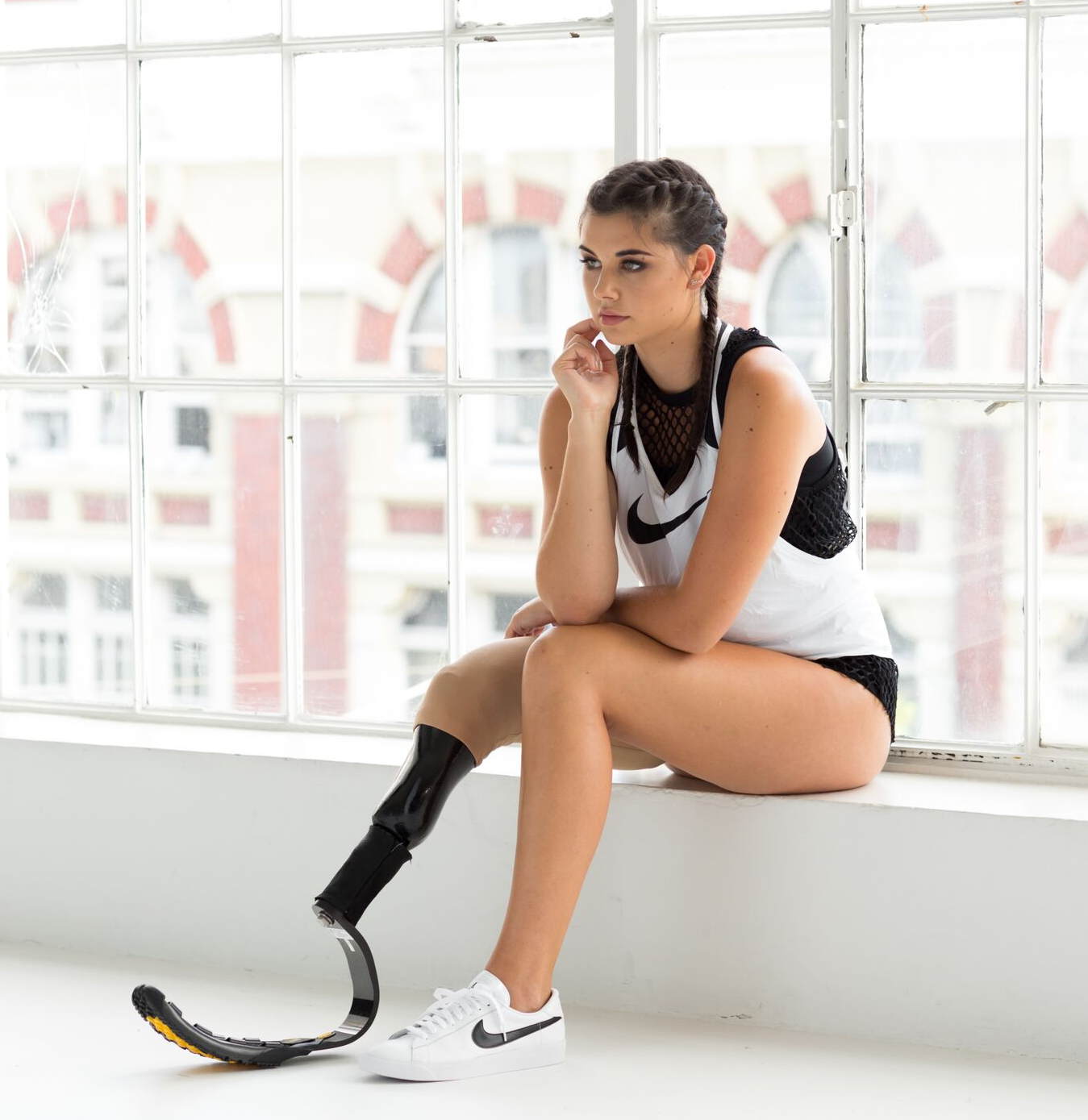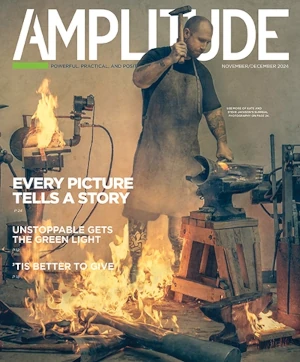What do 10 paracyclists, 24 hours, and 483 miles add up to? More than $21,000 for COVID-19 relief.
Congrats to the team of paratriathletes who kicked off National Triathlon Week by cycling across Colorado’s deserts, peaks and plains to raise $21,000+ (and counting) for people who’ve taken a hit in the pocketbook because of the pandemic.

Kendall Gretsch, Melissa Stockwell, and Hailey Danz
Led by three amputees who swept the Paralympic medal podium in Rio four years ago, the 10-person crew tag-teamed its way across 483 miles in just over 24 hours, riding in shifts to keep the group in perpetual motion. The money will support a southern Colorado food bank and the U.S. Triathlon Foundation’s special fund for athletes impacted by COVID-19. (You can still make a donation, BTW.)
“It exceeded all of our expectations,” says Melissa Stockwell, who took bronze in Rio. “All the riders knew each other, and we’ve all trained together, so there was really great camaraderie.”
It was also a chance to break the monotony of quarantined training and raise everybody’s morale after the postponement of the Paralympics.
“Once the competition calendar was shut down, the reality of racing anytime soon just disappeared,” says US Paratriathlon Resident Team coach Derick Williamson, who came up with the idea of a 24-hour, border-to-border ride. “I wanted something the athletes could work toward that would also benefit the greater good and the community.”
“Those of us at the elite athletic level are very goal-driven,” adds Stockwell. “When the goal of Tokyo was put on hold for a year, training just became training—there wasn’t anything to train toward. It gets hard to motivate yourself. The ride was both a physical challenge and an opportunity to raise some money for a really good cause.”

The event, dubbed Operation CO > COVID, was novel for most of the racers, both for its round-the-clock endurance format and its overnight segments.
“Most of us had never raced at night before, and I think it was almost everybody’s favorite part of the ride,” Stockwell says. “It was this incredibly freeing feeling. You’re in the dark, under the stars, and you’ve got a follow car to ensure that you’re safe. All you hear is your breathing and the sound of your wheels. You almost feel like you’re invincible.”
“Everybody was nervous about the night riding at first,” says Williamson. “The only person who had experience with it was our visually impaired rider, Kyle Coon. But it was fun to watch everyone get confident in the dark. They had lights, and we had lights on the truck and were right behind them. By the time it was over, they were all very comfortable with it.”
The biggest challenge overnight may have been the temperature, which plummeted to 25 degrees as the riders crested Monarch Pass.
The athletes now turn their sights to the USA Paratriathlon National Championships, scheduled for September 20 in Cocoa Beach, Florida.




